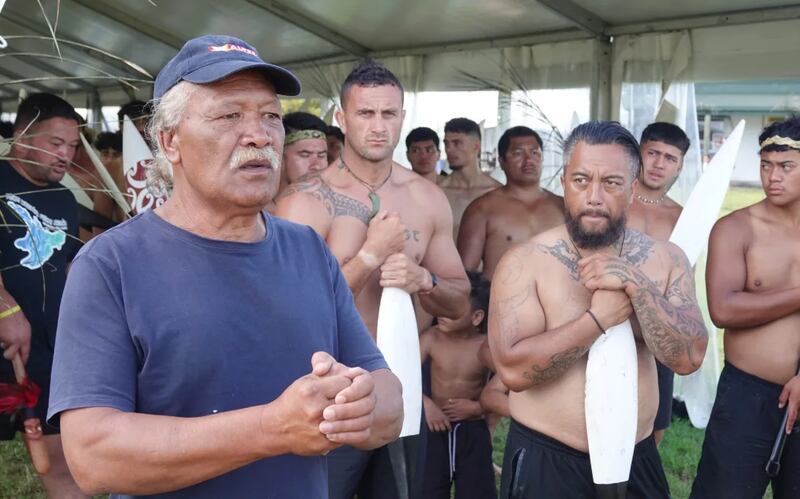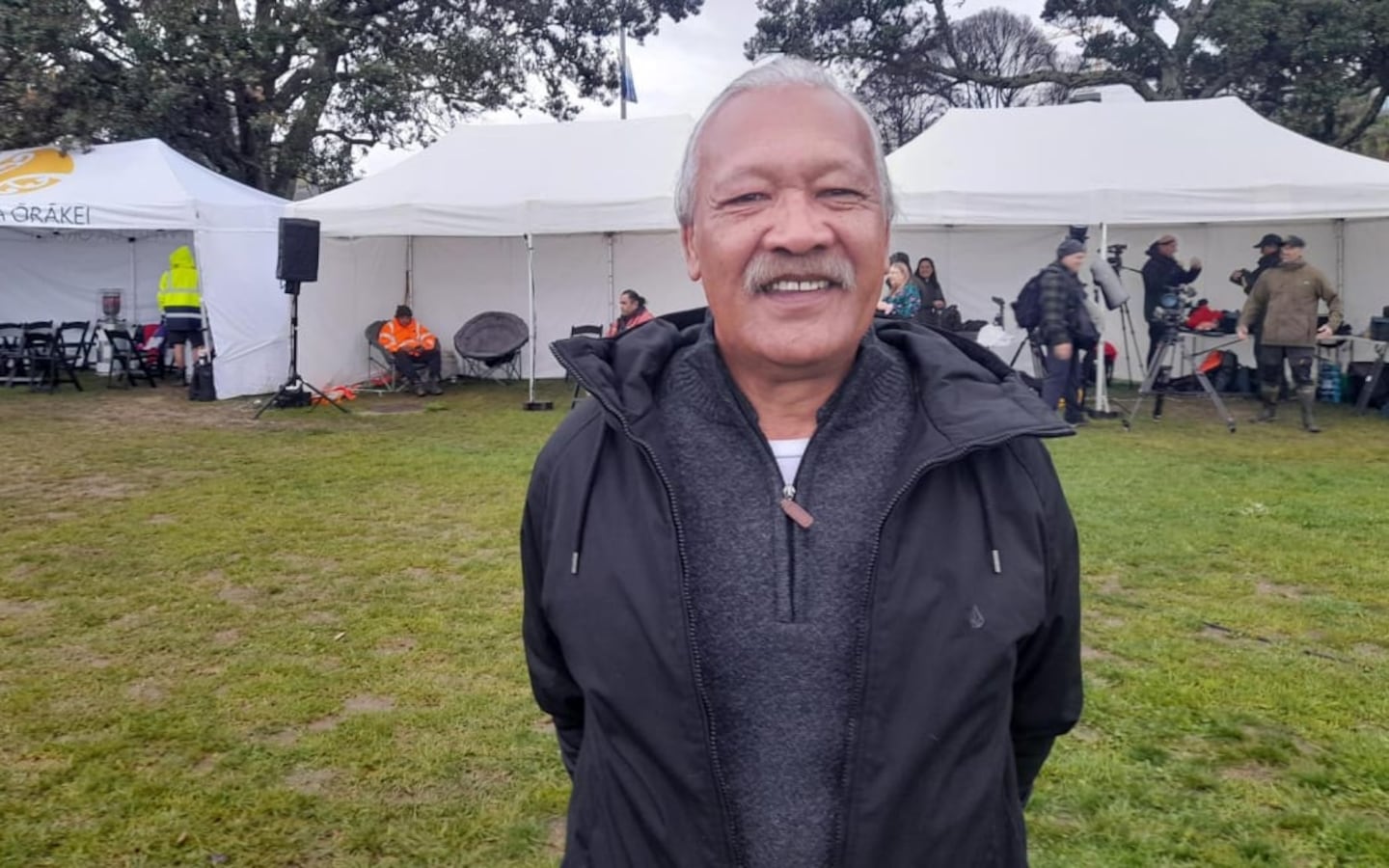This article was first published on RNZ.
Joe Conrad (Te Aupōuri, Ngāti Kuri, Ngāi Takoto, Te Rarawa and Ngāti Hauā) has been involved in waka kaupapa since the mid-1990s, and for years now has led as kaihautū (captain) of Ngā Toki Matawhaorua - the stunning ceremonial waka that many of us have seen in action at Waitangi.
He helped keep waka knowledge alive, brought communities together through culture, and built international connections with other indigenous peoples.
In addition to that, Conrad has helped support Treaty negotiations, and more recently taken on a new role supporting male survivors of sexual violence in Te Tai Tokerau.
And on Monday, he was made an Officer of the New Zealand Order of Merit for services to Māori, particularly kaupapa waka.
He told RNZ he got the call while he was “out on 90 Mile Beach having a fish”.
“Because I wasn’t answering my phone calls from the prime minister’s office, they actually rang me directly and said, ‘Don’t hang the phone up anymore because we’re trying to give you an honour.’ … I sort of didn’t know what to think actually, you know? I just do what I do.”
His journey began in the mid-1970s when his dad - then captain of the Ngā Toki Matawhaorua - “dragged” him along to Waitangi.
“I don’t think Mum and Dad trusted us at home by ourselves… it’s all history now, and, much appreciated for the recognition that people thought that I’d done well.”
One of his biggest influencers was Sir Hector Busby, a navigator and traditional waka builder.
“I spent probably most of my adult life getting growled at by him over those years and, you know, you have to have people of that calibre around you growing up. With my dad and Uncle Hector and Sir James Hēnare and all those old elders of that time… taught us some very, very knowledgeable lessons, and you sort of continue to evolve from their level.
“And today being in command, I suppose, I need to leave something behind for the next generation that’s coming up behind me, and hopefully the influence those old leaders have passed on to us is not to be taken away when I go away, to be left to encourage the younger generation to evolve again to another level.”
Conrad used his waka expertise to assist efforts to spread Māori culture around the world, particularly Europe.
“We were part of Team New Zealand when we challenged Valencia at that time, and our Prime Minister Auntie Helen (Clark), she mentioned to Uncle Hector and I about, have we ever thought of building a waka and leaving it in Europe? Knowing that… Māori or New Zealand were starting to grow within our arts around the world.”
Around the same time, New Zealand’s Te Papa Tongarewa was trying to repatriate tattooed heads from a museum in the Netherlands taken “by the flick of a pen or by the point of a gun”.

Conrad said many European nations were keen to get a waka, but the Netherlands got it - on permanent loan - thanks to their swift response to New Zealand’s request.
“From there we grew that relationship… it just exploded after that, and now we have up to 200 to 300 young Dutch boys and Dutch girls part of the kaupapa up in Holland, a lot of them trying to speak Māori or know how to speak te reo."
Conrad took a waka to the UK for Queen Elizabeth II’s Diamond Jubilee in 2012 - and it was an immediate hit with some.
“Representatives from all over the world, other countries were seeing us doing this ceremony every morning, blessing our waka - so one morning we turned up and we couldn’t even launch our waka, there were that many other boats and vessels parked in our moor and wanted their vessels blessed as well.”
But not everyone was happy to see them, Conrad explained, with an “uproar” in the British media over the uniquely New Zealand cultural display the crew had planned.
“We were supposed to line up and raise your paddles in the air and give three hearty cheers to the queen, ‘hip hip hooray’, and so we come past on the log and started poking tongues and chanting our normal chants, and yeah, very well applauded by the queen at that time.”
- RNZ

